Best Laptop Deals for August 2023: Back to school discounts now live
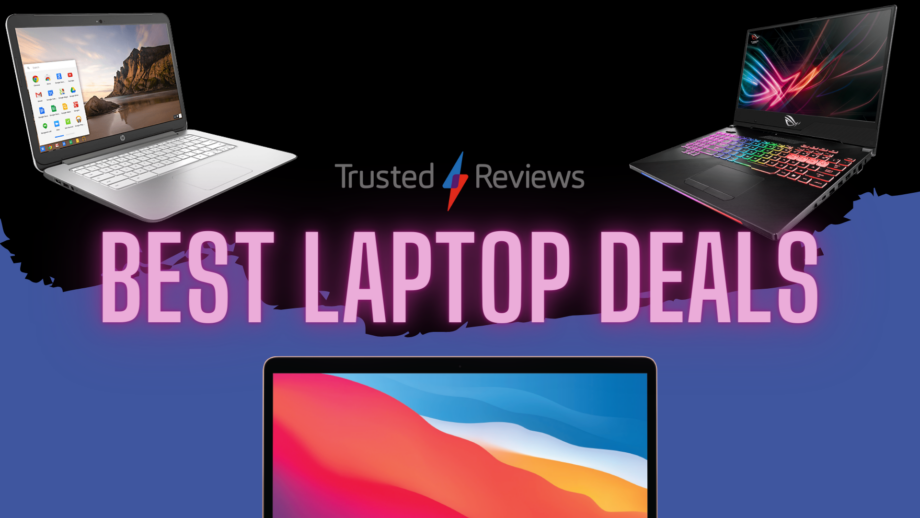
Need a new laptop to boost your productivity or level up your gaming experience? Score a bargain when you buy with our best laptop deals.
It doesn’t matter if you’re a student, a gamer or maybe an Excel wizard – having the right laptop to hand can make a huge difference. When your existing laptop or PC starts to show its age, it’s the type of slowdown that you’ll start to notice immediately, particularly if it hampers your ability to be productive.
The problem is that in order to get the best laptop to suit your needs, you typically have to hand over a decent chunk of cash for the privilege – which is exactly why we’ve put this article together. We don’t believe that upgrading your laptop should cost a fortune so, in accordance with our tech expertise, we’ve been on the lookout for the best offers that are actually worth your time on devices you’ll be pleased with.
If you’re looking to pick up a few items alongside a new laptop, then we’ve also got you covered with our round-ups for the best TV deals, best iPhone deals and best Broadband deals. For everyone else, keep reading on to see what offers are currently available.
Best Laptop Deals

MacBook Air M2 for under a grand
If you’re happy with a refurbished model, you can save more than £200 on the gorgeous and powerful MacBook Air M2.
- Hoxton Macs
- Save £200+
- £945

Save £134.74 on the Surface Laptop Go
eBuyer is offering the Surface Laptop Go for £ 399.98, which is a saving of £134.74 on the previous price.
- eBuyer
- Save £134.74
- £ 399.98

Snatch up the Lenovo Legion 5 for under £1000
If you’re looking for a new gaming laptop and don’t know where to start, this discount on the Lenovo Legion 5 is definitely worth checking out.
- Box.co.uk
- Save £580
- Now £999.99

ASUS TUF A15 Gaming Laptop Deal
If you’re after a solid gaming laptop bundle that doesn’t break the bank then look no further than this incredible Asus deal from Amazon.
- Amazon
- Was £1099.99
- Now £861.29
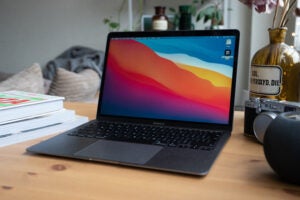
M1 MacBook Air Deal
The M1 MacBook Air is still a fantastic laptop in 2023, packing super fast speeds and a battery life that leaves other laptops in the dust.
- Amazon
- Was £999
- Now £820.98

Asus Vivobook S15 OLED Deal
With a gorgeous OLED display and a sleek chassis to boot, this Asus laptop has also received a significant price cut at Amazon.
- Amazon
- Was £1499.99
- Now £1299
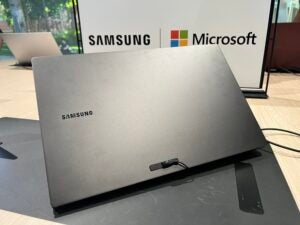
Samsung Galaxy Book2 Deal
The Galaxy Book2 is a stylish laptop that pairs seamlessly with Samsung phones, and it can now be had for a reduced price at John Lewis with a two-year warranty included.
- John Lewis
- Save £200
- Now £499
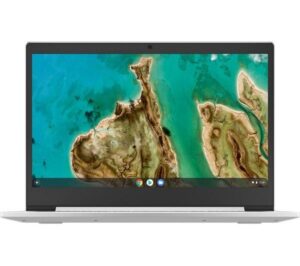
Lenovo IdeaPad 3i 15.6-inch Chromebook Deal
You’ll be hard pressed to find a more cost effective Chromebook deal than this, making it a great shout for any students tied to a strict budget.
- Currys
- Was £349
- Now £269
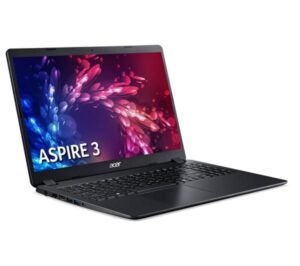
Acer Aspire 3 15.6″ Laptop Deal
At just £349, the Acer Aspire 3 is now ideal for anyone looking to buy a low-cost Windows laptop for entry-level work or casual browsing and streaming.
- Currys
- Was £429
- Now £349

2022 M2 MacBook Pro Deal
The M2 MacBook Pro is super fast and super powered, but that hasn’t stopped Amazon from slapping the device with a hefty price cut.
- Amazon
- Was £1349
- Now £1175
How much should I spend on a laptop?
Arguably the most important question to ask, particularly as there’s so much choice out there that can make it hard to gauge what the average spend is for a typical laptop. For most people, it isn’t worth spending more than £500/£600 on a laptop if you only plan on using it for general office work or light entertainment.
You can find cheaper laptops than that (particularly in the Chromebook aisle) that make some caveats but are great options for students who don’t need much in the way of processing power. For more intensive workloads such as video editing or even high–end gaming, then it’s far more acceptable to spend around £1000+ on your next laptop, and the price can rise significantly depending on the specs you go for.
How much laptop storage should I get?
If you plan on storing lots of video and image files locally then it’s worth investing in a laptop that comes with 1TB/2TB of storage, as it’ll save you from any worries down the line and all being well, you won’t have to upgrade that capacity.
For folks who do most of their work in an internet browser or have access to cloud storage, you can get away with having just 128GB on your hard drive for various bits of software.
What’s the difference between HDD and SSD?
A Hard Disk Drive (HDD) and a Solid State Drive (SSD) are two forms or storage that are commonly found when talking about computing and laptops – chances are you’ll see one or both listed among a laptop’s key specs.
HDD is the older format, and while it can’t perform to the same speeds as SSD, it is possible to buy larger HDDs for less. SSDs on the other hand are ideal for booting up programmes and files quickly, but that extra speed comes at a premium that’s reflected in the final price.
What is a 2-in-1 laptop?
As its name implies, a 2-in-1 is a laptop that can also double up as a tablet, either by a 360-degree hinge that hides the keyboard or via a detachable design that lets you remove the keyboard completely.
What is a Chromebook?
Similar to a traditional laptop, Chromebooks are given their name because they run Google’s ChromeOS instead of Windows or macOS. While not the best picks for intensive tasks like gaming or video/photo editing, Chromebooks are notable for their lower price point and ability to run Google apps with impressive speed. If you want to know more about which Chromebooks are worth buying, check our round-up of the best Chromebooks.
Should I get a laptop or a tablet?
This is a question that only really applies to students (any power-intensive work will always require a laptop or even a desktop computer), but it’s still worth asking. For writing and casual collaborative work that might require apps like Google Docs, Powerpoint or Canva, tablets can do the job just fine and they have tons of battery life to help them go the distance.
While laptops aren’t quite on the same level as tablets in terms of battery life (aside from a select few like the M2 MacBook Air), they mostly offer up a better typing experience and it’s just a lot easier with regards to file management and keeping track of where your course documents are. Deciding which one to side with depends entirely on the workload required for your chosen subject.








